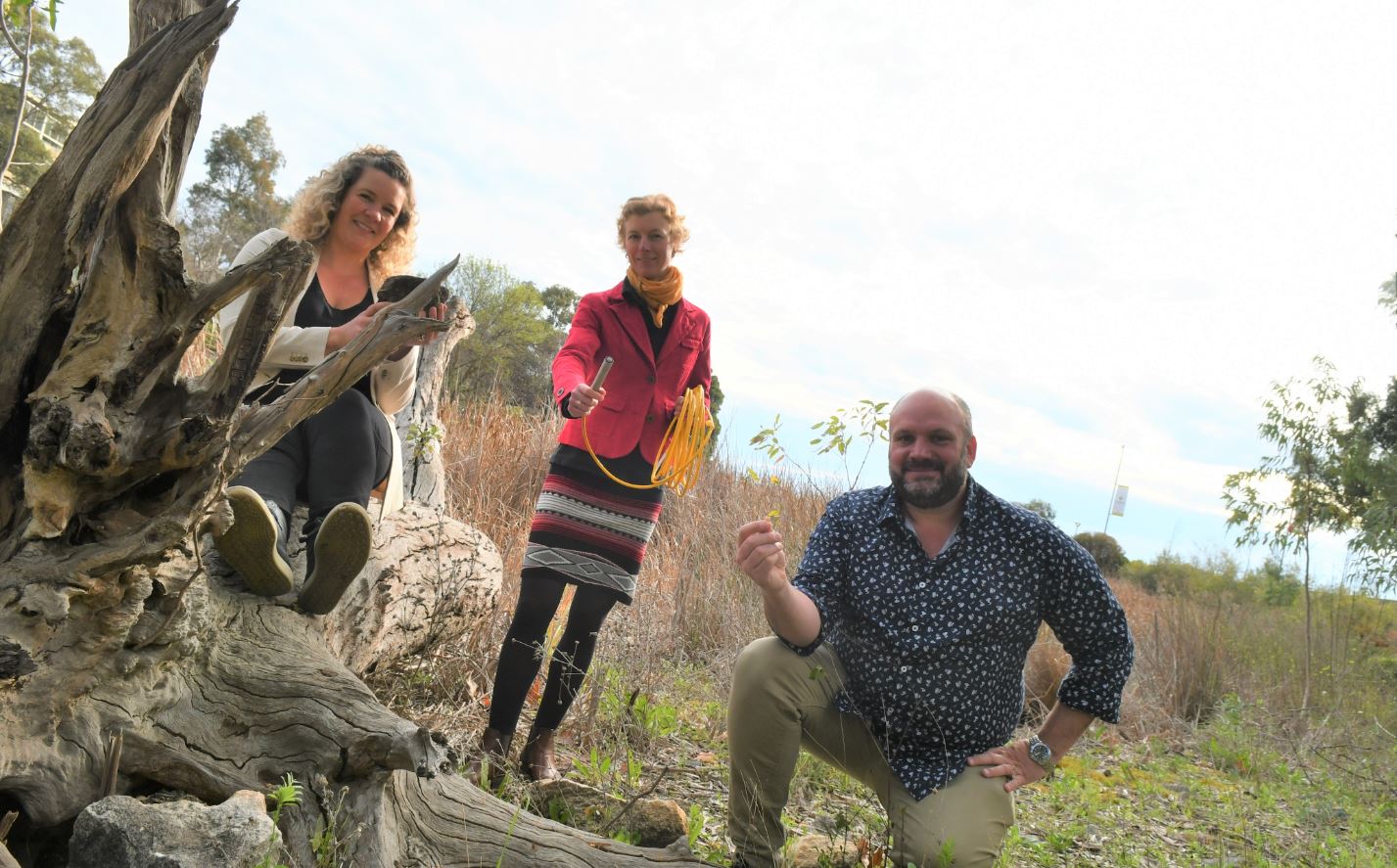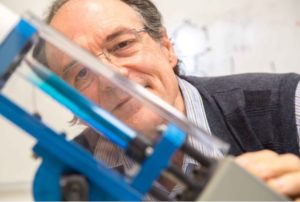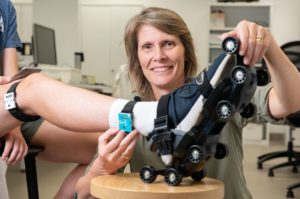
Three of Flinders University’s emerging stars of research – hydrogeologist Dr Margaret Shanafield, archaeologist Dr Ian Moffat and palaeontologist Dr Alice Clement – have been named in this year’s SA Tall Poppy Science Awards.
Flinders University Professor of Clean Technology Colin Raston is a finalist in the SA Scientist of the Year category of the State Government SA Science Excellence and Innovation Awards and Flinders Professor Karen Reynolds and Olivia White with the Medical Device Partnering Program (MDPP) a finalist in the Excellence in Science and Industry Collaboration section.

The Tall Poppy awards and SA Science Excellence and Innovation Awards celebrate researchers in STEMM (science, technology, engineering, mathematics and medicine). The announcement of finalists in both award programs coincide with National Science Week 2020.
Drs Shanafield, Moffat and Clement are emerging experts in their fields of water management, early human civilisations, and prehistoric fish fossils – some of the earliest lifeforms on Earth. Their year-long Tall Poppy roles kick off with official presentations on 21 September.
Professor Raston, who invented the highly acclaimed Vortex Fluidic Device (VFD), was nominated for his contribution to science education and research in South Australia – and further afield as the device is used to develop new and exciting nanoscale solutions for health, energy and environmental applications, and more.
The VFD allows researchers to study how fluid flows in the device at very small dimensions. “This is a major breakthrough, in being able to predict the way the device needs to be operated for any application,” Professor Raston says.
The MDPP, based at the Flinders University Medical Device Research Institute at Tonsley Innovation District, partners local entrepreneurs and companies with university researchers and healthcare experts to facilitate the design, patenting and development of new technologies and products – including the ‘Ezy-Aim’ orthopaedic surgery devices by Austofix and Ferronova’s early stage cancer diagnostics device.

The program, led by Professor Reynolds and MDPP national manager Ms Olivia White, was formed in 2008 to foster collaboration between researchers, industry and end-users. Last year, more than 150 experts from over 40 institutions, including universities, research organisations, government departments, healthcare and aged-care providers, manufacturers and patent firms have contributed to ideas through the MDPP.
In another successful industry collaboration, Flinders University marine biology experts were part of the Great Australian Bight Research Program involving more than 100 scientists and technical staff from a range of organisations. The project has uncovered more than 300 species of wildlife and other aspects of conservation significance.
Flinders University Deputy Vice-Chancellor (Research) Professor Robert Saint congratulated this year’s science award finalists and Tall Poppy recipients.
“Doctors Shanafield, Moffat and Clement are outstanding advocates for science, with a thirst to share their knowledge, enthusiasm and experiences with colleagues, students and the wider community,” Professor Saint says.
“These young and inspirational scientists, with their important research on water resource impacts and management, the impact of climate variation on human evolution and the evolution of the brain in early vertebrates, have so much to offer in helping our community appreciate the enormous importance of research.”

The Tall Poppy awards coincide with the annual Unsung Heroes of SA Science Awards, which this year includes a finalist from Professor Damien Keating’s laboratory in the College of Medicine and Public Health at Flinders University.
Technical Officer Microscopy and Pathology, Mrs Pat Vilimas, is a finalist for her commitment to science and supporting research and researchers in medical research.
Her contributions have been central to Flinders researchers using innovative technology, developed new ways of making antibodies to examine the gut nervous system, and to the creation of new knowledge in the field of autonomic neuroscience. Throughout her career she has trained, enthused and supported hundreds of students and researchers to undertake their own work, her nomination says.
The annual Australian Institute of Policy and Science (AIPS) Tall Poppy awards recognise up-and-coming scientists who combine world-class research with a passionate commitment to communicating science.
“This year’s Tall Poppies are excellent examples of the cutting-edge research being undertaken here in South Australia,” says AIPS Chair Professor Maria Kavallaris OAM.
“A more scientifically engaged society is something every scientist should aspire to and the reason that Tall Poppy winners are so important.”
Minister for Innovation and Skills David Pisoni says this year’s SA science awards finalists are working on landmark research and innovative projects that span many different industries – from understanding cancer, to new approaches to analytical chemistry, and discovering sustainable development opportunities for South Australia’s unique environment. “Congratulations to all finalists for their outstanding achievements, rigorous research and important contributions to our economy and the wider community,” Mr Pisoni says.
Tonsley-based Micro-X, which makes medical and security imaging products using cold cathode x-ray sources, is a finalist in the new Innovator of the Year category.

